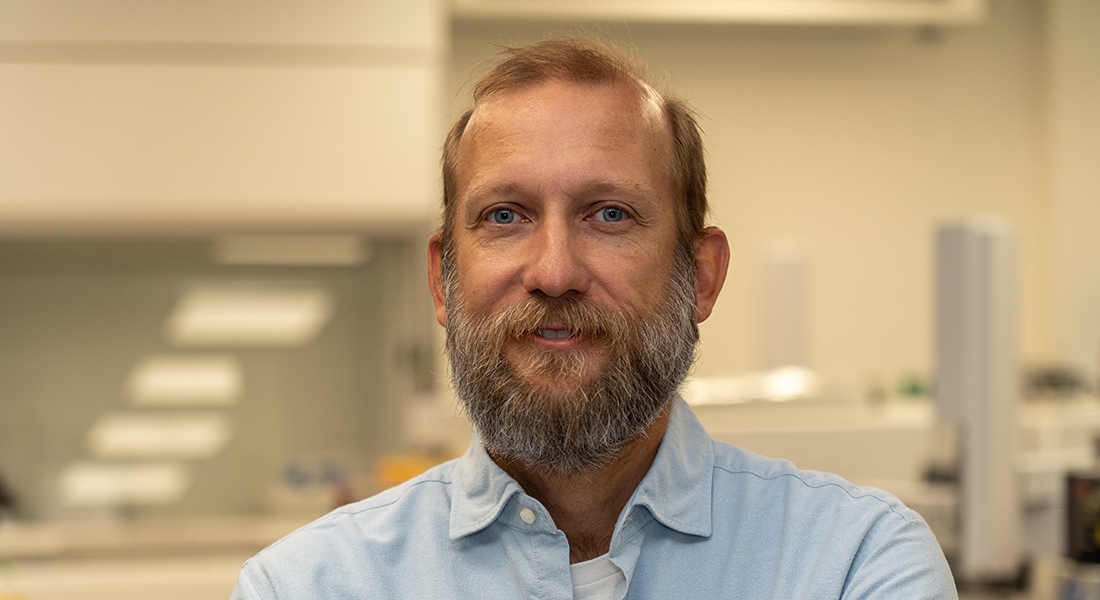New investment brings proteomics technology and -education closer to researchers
Proteomics Research Infrastructure (PRI) at University of Copenhagen has just received 90 mill DKK from the Novo Nordisk Foundation to continue and develop the facility and its services.

Not only are proteins the fundamental building blocks of all living organisms, they are also key to researchers’ understanding of diseases, physiological processes, distribution of various life forms and interactions between organisms. Access to state-of-the-art proteomics technology is therefore essential for life science researchers.
Vice-Dean for Research, Professor Hans Bräuner says: “PRI has experienced overwhelming success from the very beginning, and it is therefore very gratifying that we can now continue, thanks to the grant from the Novo Nordisk Foundation. Proteomics is a highly specialized technique that requires both dedicated equipment and highly qualified personnel - resources that individual research groups cannot support on their own. PRI has been a pioneer in introducing a full-service model, where researchers receive assistance with every step of the process, and not just have their samples processed.”
From the Novo Nordisk Foundation, Chief Scientific Officer of Planetary & Technology Lene Oddershede states: “The Novo Nordisk Foundation is committed to supporting world-class research within protein science. With this grant, we are helping to make the most recent developments within proteomics accessible to a broader community, empowering researchers to address some of the most pressing challenges relating to biological processes, disease mechanisms and the functioning of living systems.”
Investing in the latest proteomics technology - and services and education to make the facilities accessible for all researchers
With Proteomics Research Infrastructure, all researchers at UCPH not only have access to world-class technology, but also expert guidance and support, from study design and sample preparation to mass spectrometry analysis, bioinformatics, and data interpretation.
Michael Wierer, Director of Proteomics Research Infrastructure, says:
“With the new grant, we are investing in the newest generation of mass spectrometers and HPLCs, while also boosting our capacity in high-throughput automation. This allows us to perform ultra-sensitive analyses down to single cells and, at the same time, process tens of thousands of clinical samples. We will also introduce new services such as spatial proteomics and NULISA, enabling biomarker discovery at the unprecedented attomolar detection level.”
Part of the development plan for PRI is also a focus on educational initiatives:
“Proteomics is evolving rapidly, and expanding education ensures researchers don’t just receive data but also the skills to interpret it critically. At the same time, we want to equip the next generation of scientists with deep, hands-on knowledge of proteomics, enabling them to use its full potential to drive discoveries and strengthen the research community”, Michael Wierer says.
The facilities at PRI are for all researchers at UCPH, and the new educational initiatives will make them available for more researchers than before, not only those who are already familiar with the technology, interpretation of data, etc.
Part of a strong and united field: Core facilities at SUND
PRI will be part of the new Center for Core Facilities, a new initiative bringing together existing core facilities here at SUND. This will create new opportunities for research collaborations and innovation.
Director of Center for Core Facilities Clara Prats says:
“Life sciences are undergoing a transformative evolution in many technology fields – by joining the Center for Core Facilities, PRI2.0 will become a very important pillar towards the implementation of innovative and robust technology workflows across core facilities, synergically boosting the impact of proteomic technologies in Denmark. As an example, PRI2.0 will closely collaborate with the Core Facility for Integrated Microscopy team to implement open access service for spatial-proteomic applications.”
With the support of the Novo Nordisk Foundation, PRI will continue to make proteomic technologies and the related services accessible to researchers at UCPH and beyond, promoting scientific discovery and innovation within life sciences.
Contact
Director of Proteomics Research Infrastructure
Michael Wierer
Article by:
Communications Consultant Lisbeth Lassen
